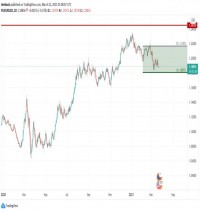|
Opalesque Industry Update - Recent events mean a dramatic increase in working from home for almost all professions. But for most of those employed in private markets, this will be a new experience as just 7% of respondents to a new study from the eVestment Private Markets group say they regularly work from their homes. In the competitive world of private markets, with an always-on culture, "balance" is not normally a word attributed to the lifestyle. But the new study by the eVestment Private Markets group set out to discover what life is really like for private markets GPs and LPs and how (or if) they manage work-life balance. Working with asset management consultancy MJ Hudson, eVestment Private Markets surveyed more than 300 people working in the private markets business at various levels of tenure and in a variety of positions around the world to discover how they spend their days, how they spend their free time, what motivates them and how work-life balance can impact investment performance. Some interesting points from the report include: - Of the 7% of respondents who said they regularly work from home, the vast majority of those (80%) are senior staff or executives. - For 21% of respondents, the work-day begins long before they arrive at the office and includes taking calls, checking emails and messaging colleagues during their commutes. The out-of-office work burden is significantly lower for operations staff, with only 5% of these professionals indicating they handle calls, emails or messages on their way to work. - More than 50% of respondents worked more than 48 hours a week on a regular basis, with 9% working more than 58 hours per week. This excludes total time spent commuting, or evening or weekend work that often forms part of these roles. - Private markets is known as a people business, so it may be unsurprising that "working with clients" is what the majority of professionals in the field most enjoy. On the flip side, however, "workload" was named as the key frustration by almost one-in-five respondents. - When it comes to why people put in the work in this industry, their motivations are extrinsic: "money" and "career success" topped the list of respondents' answers both just north of 18%. Intrinsic motivators, such as "self-improvement" and "education," were cited by just 7% and 6% respectively. In addition to presenting the data, the report presents insights from workplace and private markets business experts on how the findings reflect general workplace best-practices and experience, which can be used to assess the health of a private markets firm, investment strategy and other aspects of the industry. For instance, private markets professionals who are working longer hours than the norm might be at risk of making poor decisions or burning out faster. Or private markets firms that demand their executives and staffs work hours that are outside the norm or that don't promote work-life balance could be at risk of losing key professionals to competing firms or industries. These and other work-life balance factors uncovered in the report could compromise the success of an investment strategy. "It's often said that people are the lifeblood of any successful organization," said Graeme Faulds, Director of Product and Research at eVestment Private Markets. "And in a business like private markets, where you're counting on unique, smart, dedicated people to find and exploit opportunities others don't see, that can be especially true. For private markets professionals and the investors working with them, this report highlights how important work-life balance, doing fulfilling work and making time to relax and recharge can be in getting the best returns and keeping people happy, engaged and at the top of their game."
|
Industry Updates
Just 7% of private markets professionals regularly work from home says new study
Thursday, April 02, 2020
|
|





 RSS
RSS








